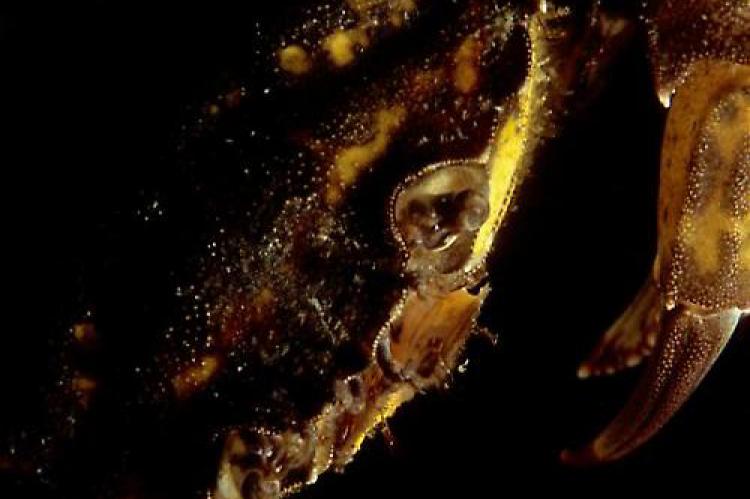Noise affects crabs
Ship noise affects crab metabolism, with largest crabs faring worst. Crabs exposed to recordings of ship noise showed an increase in metabolic rate, indicating elevated stress.
A team from the Universities of Bristol and Exeter exposed crabs to recordings of ship noise and found it affected their metabolism—indicating elevated stress—and found little evidence that crabs acclimatise to noise over time.
Ship noise is the most common source of noise in the aquatic environment.
If commercially important crabs and lobsters are affected by noise, these findings have implications for fisheries in busy shipping areas where large individuals may be losing out.
Conversely, if reducing noise reduces metabolic costs, then quietening aquaculture facilities may lead to higher yields.
Findings
The response to single ship-noise playback was size-dependent, with heavier crabs showing a stronger response than lighter individuals. Repeated exposure to ambient-noise playback led to increased oxygen consumption (probably due to handling stress), whereas repeated exposure to ship-noise playback produced no change in physiological response; explanations include the possibility that crabs exhibited a maximal response on first exposure to ship-noise playback, or that they habituated or become tolerant to it.
Since larger crabs are affected more strongly by noise this could have implications for fisheries in noisy areas.
—Dr Steve Simpson, University of Exeter


